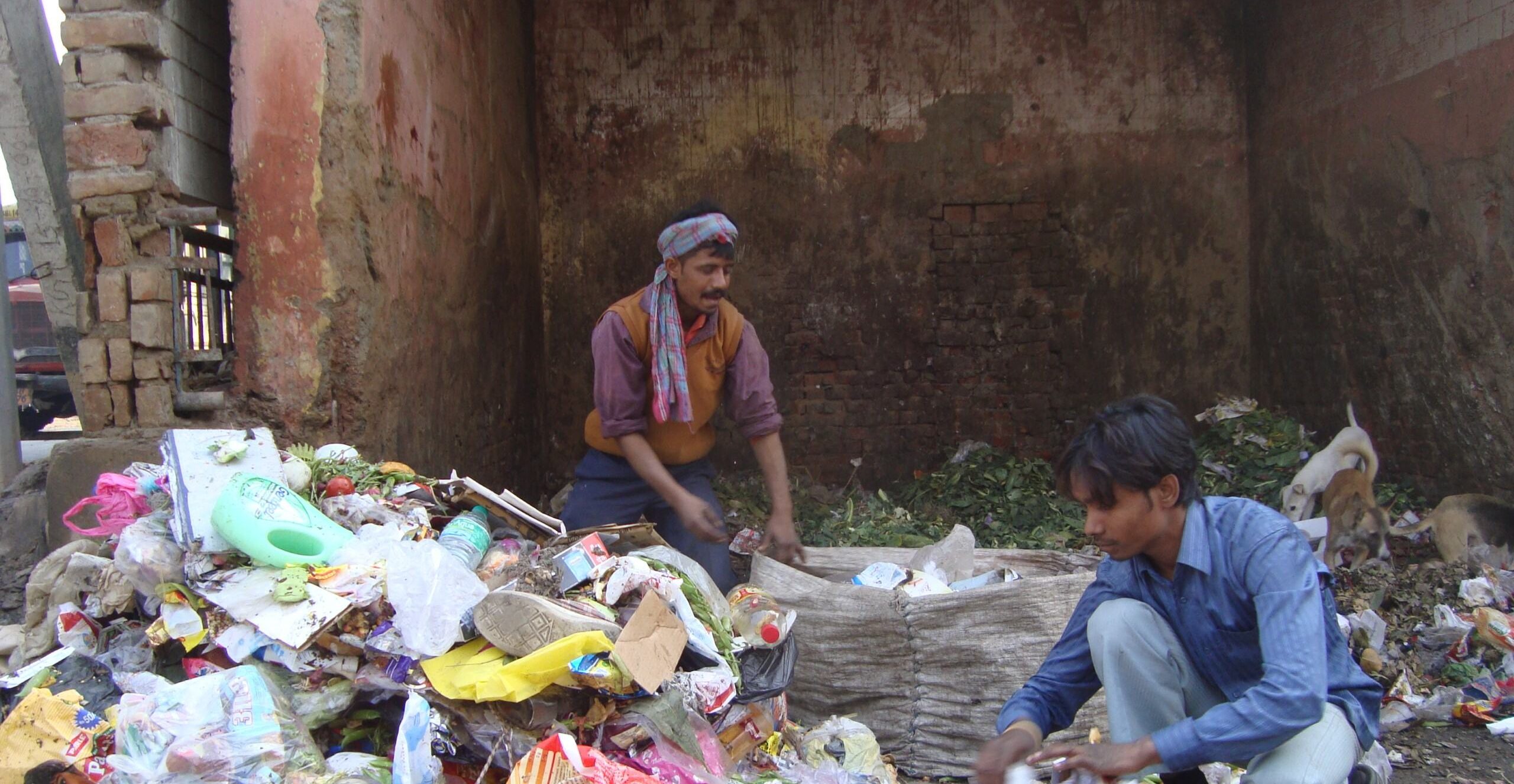Transdisciplinary research for an alternative waste management approach
| Lead | University of Sussex |
| REF Panel | C – Social sciences |
| REF UoA | 17 – Business and management studies |
| Locations | India |
| Funders | Economic and Social Research Council (ESRC) |
| Funds or grants | Social, Technological and Environmental Pathways to Sustainability (STEPS) Centre |
| Partners | In India: All India Kabadi Mazdoor Mahasangh (AIKMM) (waste picker association), Jawaharlal Nehru University, Toxic Links (non-governmental organisation – NGO), Lok Adhikar (waste picker association) |
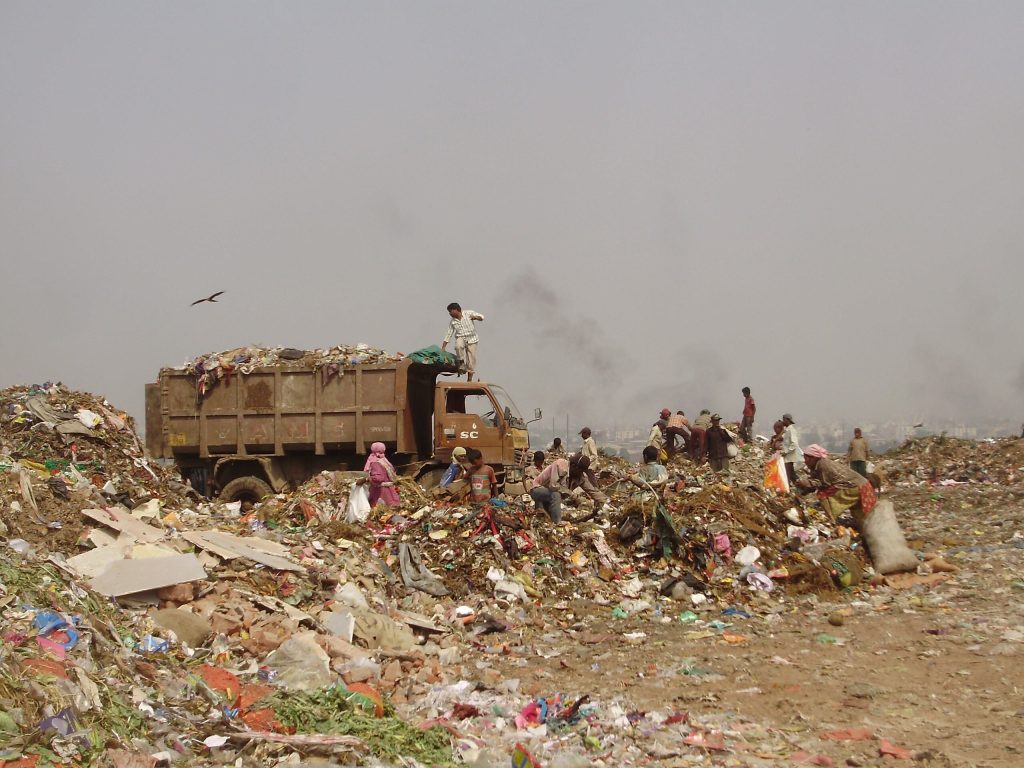
“We had our own research programme administrator who was full time and that made a huge difference, particularly in organising events and managing finances with partners. Another helpful thing was having a dedicated communication engagement and impact person who helped us to engage with diverse media outlets and create films, videos, and stories.” UK-based researcher
Poor waste management processes have led to considerable issues for urban populations, including negative effects spanning health, society, and environment, which are felt strongly by marginalised communities. In India, approximately 1.5 million informal waste pickers are involved in waste management. These individuals collect and sell recyclable materials, thus reducing waste disposal and greenhouse gas emissions. Researchers worked with Indian government officials, NGOs, industry professionals, and waste picker associations to understand the complexities of the urban waste management system. Together, they helped co-create more informed, inclusive, and sustainable waste management policies and inspired new practices in India.
Key Impacts
Shaping national waste management policy and practices
- Research findings influenced national legislation, through a new manual on Municipal Solid Waste Management (MSWM). The new set of guidelines increased recognition of the informal waste picking sector, the role of decentralised recycling, the value of composting, and the need to address hazardous waste transfer to poorer areas.
- Following the new MSWM manual, the Municipal Corporation of Delhi (MCD) planned ten decentralised initiatives in both residential and commercial areas to process urban organic waste to generate high-quality manure.
- Based on transdisciplinarity and grassroot innovations, research findings spurred new approaches and practices in day-to-day waste collection and processing.
Promoting collaboration across different actors of the waste management system
- Research in Pune and Ahmedabad highlighted alternative waste management practices that link informal and formal sectors. Lessons shared from this experience encouraged discussions on waste pickers’ inclusion in the system. They also facilitated unprecedented engagement between waste-picker associations and private companies, such as the Lok Adikhar union formal contract for waste segregation in Delhi.
- Success in Delhi encouraged community engagement and collaboration among local waste pickers and NGOs to address broader issues pertaining to social justice, health, and environment for poor and marginalised communities.
- Participatory workshops in waste picking associations strengthened bottom-up advocacy efforts. AIKMM, with over 100,000 members, advocated for traditional labour rights, addressing environmental issues, and working with the formal sector for wider benefit.
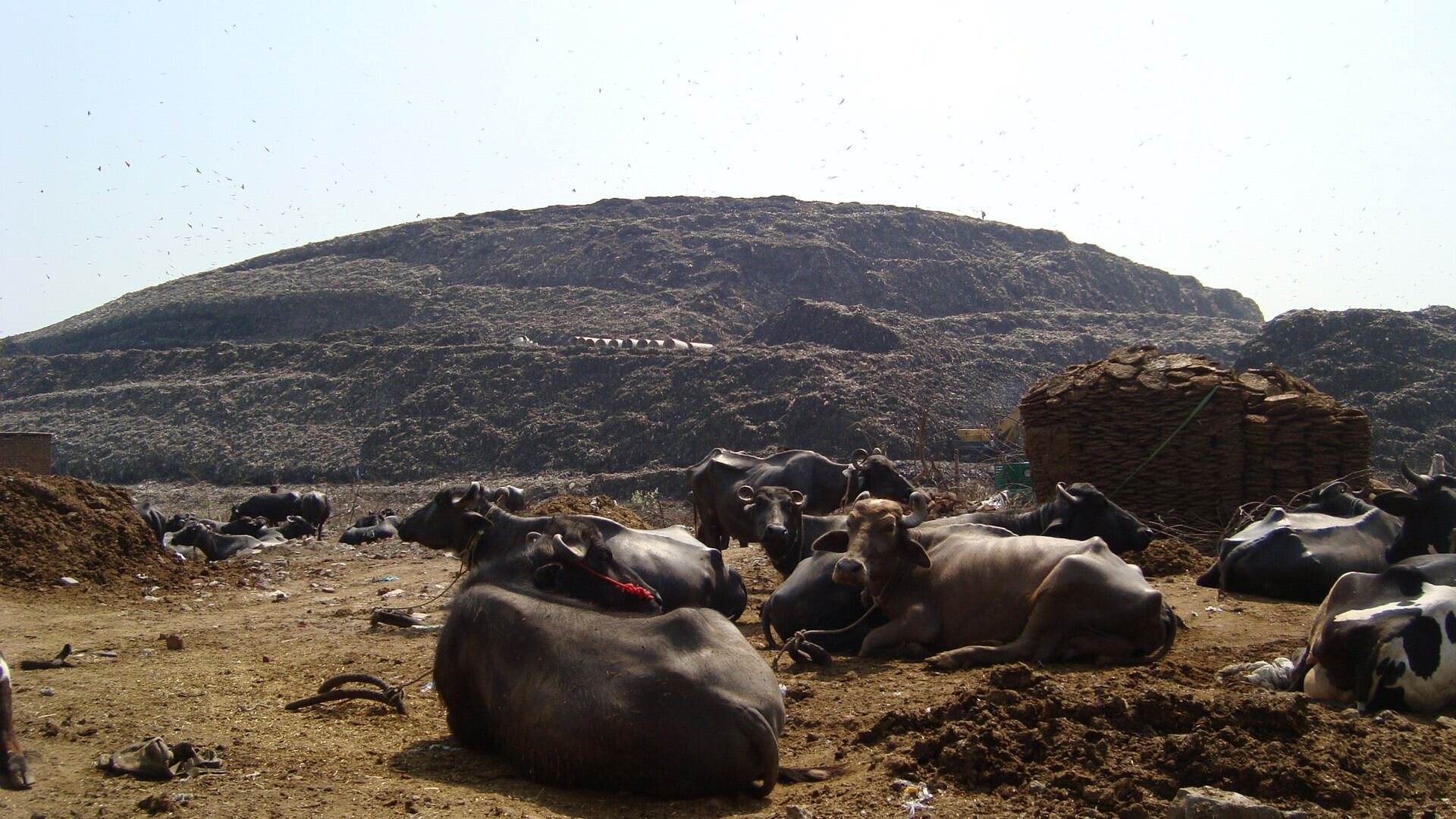
Underpinning research enablers
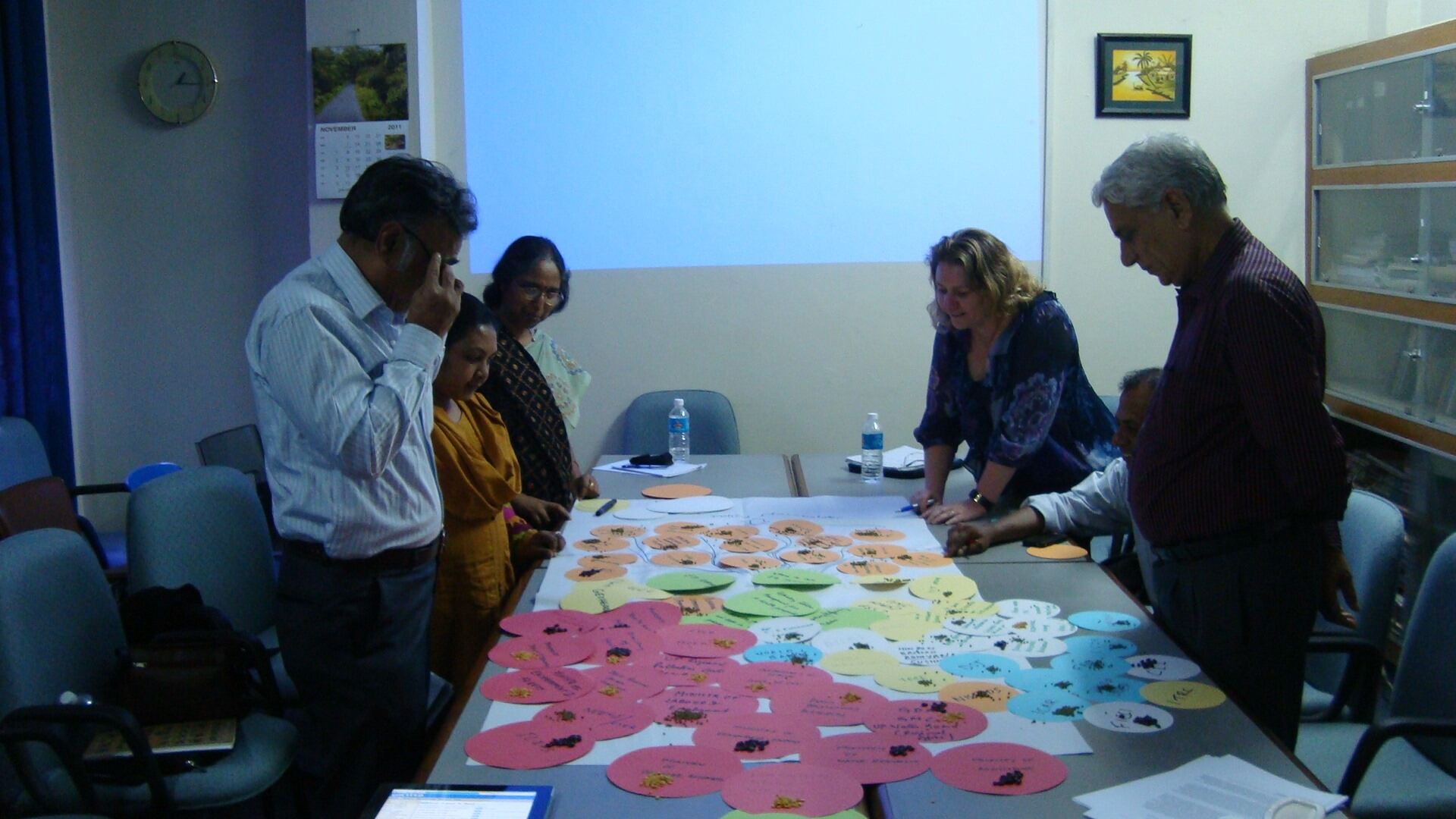
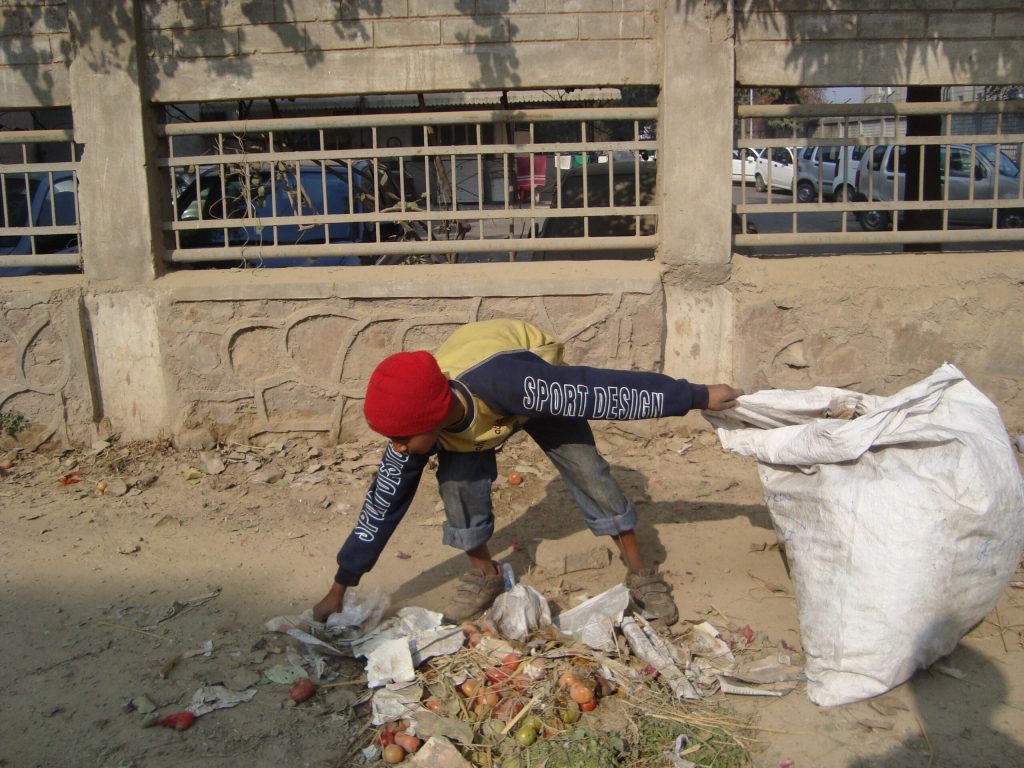
Encourage challenge-led interdisciplinary and transdisciplinary research
- Enabling an interdisciplinary environment: Collaboration between Jawaharlal Nehru University (JNU) and University of Sussex brought together the experiences, knowledge, and research agendas of different departments across both universities. Exploring socio-political and environmental dimensions of urban waste management enabled impact that cut across multiple Sustainable Development Goals (SDGs)and the co-production of robust recommendations.
- A long-term transdisciplinary approach for systemic change: A 20-year relationship with environmental NGO Toxic Links and ten years of work with two waste pickers’ associations built strong equitable partnerships and anchored a transdisciplinary research approach. Capitalising on different priorities and perspectives, these relationships built a multi-layered strategy that bridged theory and practice. While researchers conducted interviews with government officials and shadowed waste pickers, NGO advocacy leaders gained participation in expert government committees.
Develop long-term academic collaborations
- Leveraging diverse expertise and experience: Long-term collaboration between JNU and the University of Sussex pooled UK and Indian expertise to create innovative waste management solutions that drew on findings and lessons from previous projects.
- Building cumulative knowledge and impact: Sustained focus and commitment to a shared agenda enabled researchers to delve deeply into multiple facets of waste management over an extended period, adding key insights and contributing to longer-term impacts.
Support project management and communication tasks
- Added value of administrative and communications support: Having dedicated project management support improved the reach of impact as it helped with project coordination, monitoring, evaluation, and reporting activities. Communications support identified relevant dissemination channels and helped create powerful stories to share findings and reflections that inspired change.
